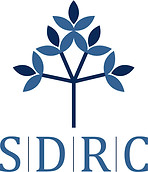Did you know?
-
43% of children with reading difficulties have an underlying Auditory Processing Disorder (APD)
-
70% of children with Dyslexia also have an undiagnosed auditory processing deficit
These hidden issues can impact focus, reading comprehension, and academic success — but they’re treatable.
A 15-minute call with our specialists can answer your questions
and help you take the first step toward a brighter, easier future for your child.
Empowering People with Learning Disability to Thrive — In School and Beyond
At Encinitas Learning Center, we help students unlock their full potential by embracing their unique learning styles. Through our intensive cognitive therapy programs, we enhance the core skills essential for achieving lasting academic and personal success.
By improving executive function, processing speed, and other foundational abilities, we not only boost performance in school — we help build confidence, independent living, and lifelong achievements.
Skill training for Persons with developmental disabilities to live more independently: getting around, managing daily tasks, enhancing memory, processing skills, and attention.
.png)

The Partnership you were waiting for.
We've been changing lives for 27 years. We are just one call away to change your family dynamics.
New Location: 527 Encinitas Blvd. Suite 104 - Encinitas

Neuroscience
+ ELC
Our programs are based by well-established research in neuroscience, auditory processing, language development, and learning differences, including the work of the following leaders:
Dr. Michael Merzenich
Neuroscientist known for demonstrating that the brain can change through targeted practice (neuroplasticity), forming the foundation of modern brain training and auditory learning programs.

"It's not just about language but about generating resources in controlling the behavior of a child in the brain, empowering them in a general sense cognitively."
Dr. Nina Kraus
Auditory neuroscientist whose research explains how the brain processes sound, speech-in-noise, and auditory timing, especially relevant for autism and auditory processing challenges.

"Making sense of sound is the most complex activity our brain can do which is processing information in microsecond time."
Dr. Paula Tallal
Over the past 30 years Tallal has led NIH and NSF multidisciplinary research teams and published 250 papers on the neurobiological basis of speech, language and reading. She is also a participant in many scientific advisory boards and governmental committees on developmental language disorders and learning disabilities.

"Time and timing in learning, a continuum of extremely importance to how the brain works, sees and perceive the world differently from another brain."
Dr. Martha Burns
Speech-language pathologist and researcher emphasizing the connection between language, cognition, executive function, and literacy, particularly in children with learning and language differences.

"Usually the students know the material, they know the answer to the test, but they are taking too long getting through it - hence why they might do poorly in standardize timed- testing -because of working memory and not content."
Dr. Teri Bellis
One of the world's leading authorities on auditory processing disorder (APD), explains the nature of this devastating condition and provides insightful case studies that illustrate its effect on the lives of its sufferers.

"When APD is diagnosed and treated appropriately, there could be an end to the struggles of learning."
Dr. Bart Boets
A clinical psychologist and research professor at the Center for Developmental Psychiatry, Dept. of Neurosciences, KU Leuven. Our research focuses on the cognitive, perceptual, socio-emotional and neural correlates of neurodevelopmental disorders, in particular autism and dyslexia.

"Recognizing the dysfunctional brain connection between left frontal and temporal language regions as the primary hallmark of dyslexia could explain the degraded phonological representations in young children with dyslexia."